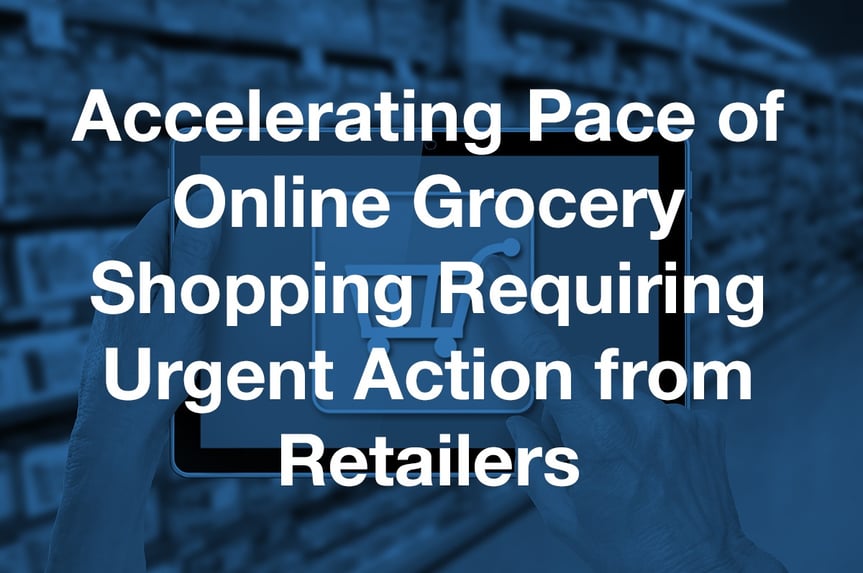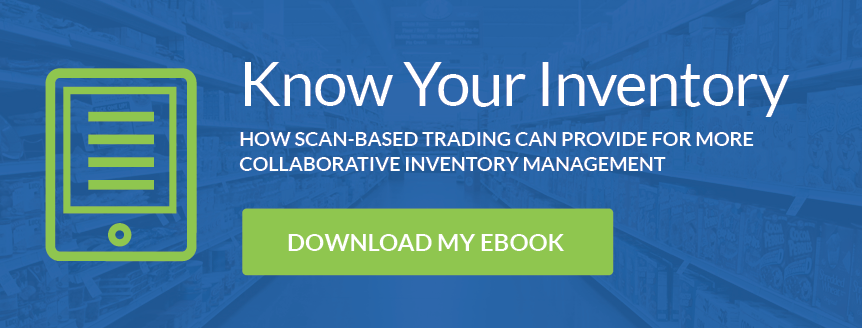
On January 29, at the Food Marketing Institute (FMI) Midwinter Conference in Miami, FL, FMI and Nielsen (NYSE: NLSN) released a critically important new “Digitally Engaged Food Shopper” study.
The study represented the culmination of a joint effort that began with joint research findings released last year. According to a press release by FMI, “key findings from this year’s study show that omnichannel shopping has passed the tipping point with online grocery shopping on an accelerated path to industry saturation.”
The press release continues, “The research indicates that in as few as five-seven years, 70% of consumers will be grocery shopping online. Now, the estimated $100 billion spend, which is equivalent to every US household spending $850 online for food and beverage annually, will occur by 2022 or 2024.” FMI notes that earlier predictions were that “consumer online food and beverage spend could reach $100 billion by 2025. Today, FMI and Nielsen report that the pace of change and adoption has far outrun initial predictions, where the pervasiveness of online engagement could cut the timeline by as much as half.”
omnichannel shopping has passed the tipping point with online grocery shopping on an accelerated path to industry saturation
The findings require any retailer who wishes to survive the new realities of the omnichannel universe to sit up and pay attention. Quite frankly, attention alone won’t suffice. Mindful retailers need to act. With urgency.
“The grocery industry is currently in the age of digital experimentation, where the roadmap on how to navigate and achieve real and profitable growth continues to evolve,” said Chris Morley, U.S. President FMCG and Retail, Nielsen. “While analytics will continue to be critical for retailers and manufacturers to understand the digitally engaged food shopper on a deeper level, a collaborative approach to balancing physical and digital sales strategies is the key to unlocking omnichannel success.”
FMI and Nielsen identified what they called “Six digital transformation imperatives for Omni Channel success”
“People, process and technology are the trifecta for a true omnichannel collaboration model,” said FMI Chief Collaboration Officer Mark Baum. “No matter the maturity stage, food retailers and their CPG business partners will find value in leveraging these six organizational imperatives as they respond for a more digitally engaged consumer.”
The six imperatives identified are:
1. Align Organizational Structures for Omnichannel Success: Integrate digital offerings in parallel with brick-and-mortar operations.
2. Address Discrepant Datasets: Scrub master data files for discrepancies; strength in data and accuracy is a critical component to successfully support online sale efforts.
3. Integrate Forecasts to Increase Operational Efficiencies: Integrate online and offline forecasting so the right amount of inventory is available to meet orders through either channel.
4. Optimize Shopper Insights: Bring retailer and manufacturer shopper information together into a single, comprehensive view of customer insights.
5. Improve Marketing and Promotions: Optimize the management of omnichannel marketing and promotions.
6. Merge Digital and In-Store Shelf Capabilities: Manage the physical shelf and its digital counterpart to create a seamless shopping experience, where consumers see the same information both on or offline.
"I think FMI and Nielsen absolutely hit the nail on the head with their six imperatives,” said iControl Data President & CEO Tal J. Zlotnitsky. “But I’m also concerned that many analysts may be overlooking or underestimating one critical factor when it comes to integrating online and offline forecasting and merging in-store shelf and online inventory capabilities — and that is being able to execute against these objectives with Direct Store Delivery.”
Any go-forward omnichannel strategy that doesn’t factor in the idiosyncrasies of DSD and solves for them, is doomed for failure.
He added, “Virtually no retailers today have capabilities in-house to overcome this challenge, which is why at iControl we spend so much time and effort on it.”
With DSD representing a quarter of the sale and half the profits at grocery, any go-forward omnichannel strategy that doesn’t factor in the idiosyncrasies of DSD and solves for them, is doomed for failure.
“It is not realistic for grocers – who are facing stiff competition, wage pressure, and low margins – to move away from DSD as a mode of securing supply of critical, often perishable items into their stores,” said Roger Davidson, a respected industry veteran who consults retailers, CPG manufacturers, and the financial industry on retail. “What grocers need to do is find ways to add capabilities on the backend so that DSD data is more readily and seamlessly available to be deployed alongside warehouse data.”
“Grocers and any other retailers in the food, drug and convenience space must find ways to spend less time and resources on simply keeping up with DSD paperwork and busywork and shift their focus and resources to measuring and driving DSD performance with serious urgency,” said Matt Gutermuth, former President & CEO of Safeway.com and a longtime industry executive who is currently a senior executive at iControl. “It won’t happen on its own, that’s for sure. It’s something that senior leadership has to recognize and address. I am beginning to see smart people recognizing that.”
Learn How iControl Empowers Retailers to Take Charge of DSD
